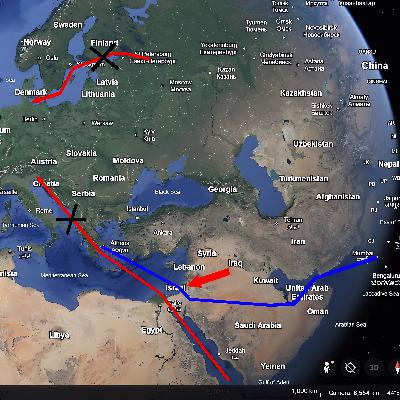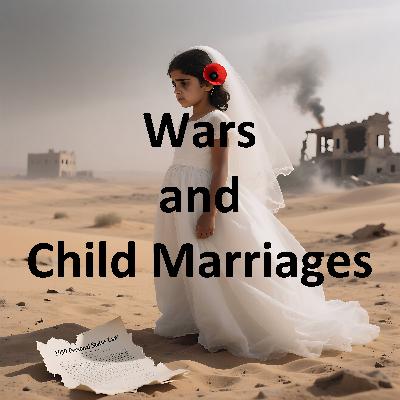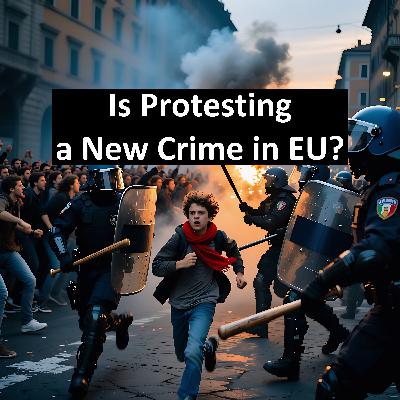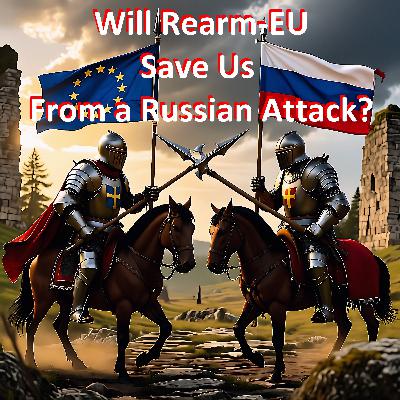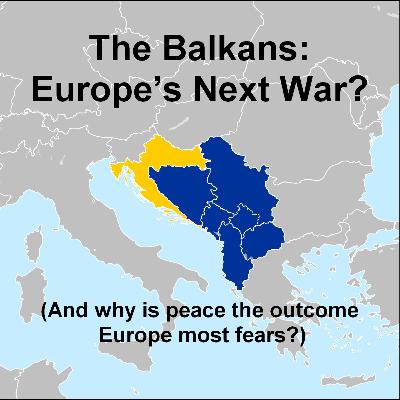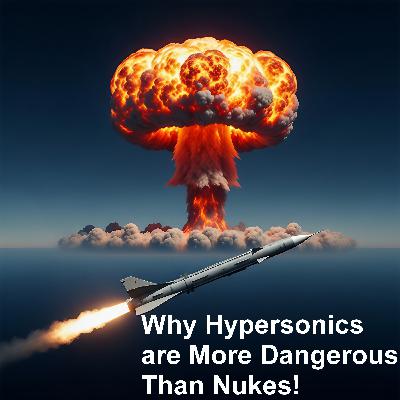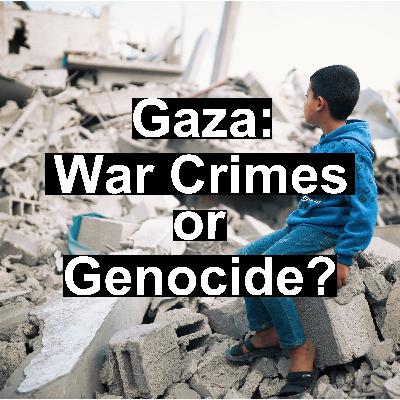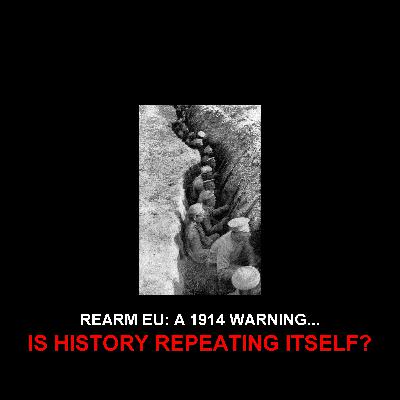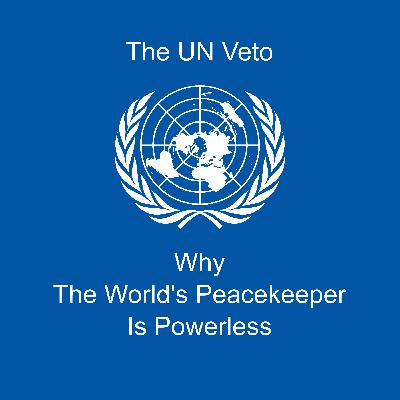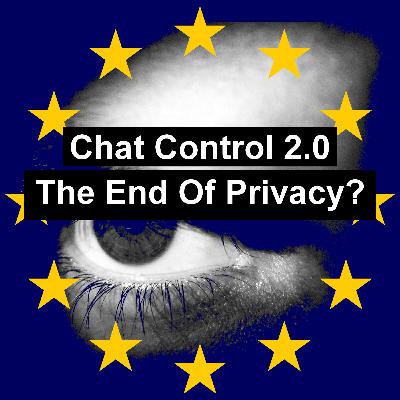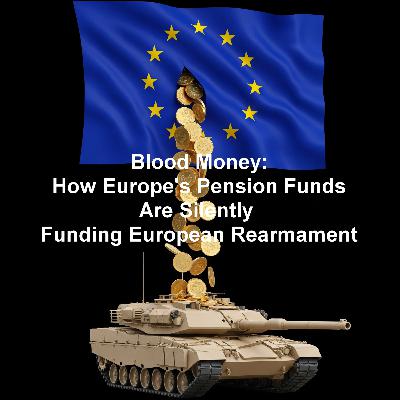Discover The Italian Uncut
The Italian Uncut

18 Episodes
Reverse
We are told that success is earned, that effort leads to reward, and that free will shapes our destiny. But what if meritocracy and free will are just comforting myths — narratives designed to preserve social order and justify inequality? In this episode, we explore the philosophical, psychological, and economic roots of these illusions, tracing how modern societies transformed moral ideals into convenient fictions. A dissection of belief, bias, and the invisible mechanisms that keep the system running.
In this unfiltered episode, The Italian Uncut reveals the deep strategic objectives hidden behind the current events in Gaza. We look past the mainstream narrative by asking the key question: Cui Prodest?We discover that the conflict is not just about security, but a war for control of global economic arteries.We analyze the economic motive behind Israel’s actions, from the controversial Gaza Marine Gas reserve to the proposed Ben Gurion Canal, the potential alternative to Suez.Crucially, we trace the invisible links between the crisis in Gaza and the war in Ukraine. We explain how these two conflicts are part of a unified Western strategy aimed at completing the separation and isolation of energy and logistics from three rival powers: Russia, Egypt, and China.Listen to understand the strategy that is redrawing the map of global energy and commerce.
An analysis of the impending dystopian future of Big Tech and global surveillance.This extraordinary episode of The Italian Uncut can't wait. On October 14, the EU is set to vote on Chat Control 2.0. Listen now for a full analysis of the law, the UK's Online Safety Act, and the role of Google and Samsung in mass surveillance. ACT NOW: Find your MEP's contact information at: https://fightchatcontrol.eu/
In this powerful episode of The Italian Uncut, we expose the real, measurable cost of the 2003 invasion. The West searched for Weapons of Mass Destruction (WMD) that were never found, but something far more devastating was unleashed: a global plague of child marriage, accelerated by political chaos.We prove the link: war causes state collapse, which destroys secular law, breeding poverty and child exploitation. We dissect how the progressive Iraqi Personal Status Law of 1959—which set the marriage age at 18—became vulnerable and was subsequently attacked by internal forces after the US-led intervention created a vacuum of power and security. The result? A controversial amendment, approved in January 2025, now permits marriage for girls as young as nine years old, dictated by sectarian religious law.This is not tradition resurfacing; it’s a direct consequence of the political chaos unleashed by foreign powers. We look at the rise in child marriages since Saddam Hussein's fall and contextualize Iraq's tragedy within the wider global crisis, revealing how the poorest children pay the ultimate price for geopolitical meddling. Hear the facts that shatter the 'exporting democracy' narrative.
In this episode, The Italian Uncut questions the very foundations of Western democracy. We'll analyze an alarming trend sweeping across Europe: the systematic repression and mass arrests of protesters in countries often labeled as democratic, including France, the United Kingdom, Germany, and Italy.We connect this alarming trend to the staggering rise in European military spending and the push for an €800 Billion rearmament plan—a narrative that is increasingly prioritized over essential social spending. We also examine how mainstream media is downplaying the wave of dissent and censoring critical information.Are we witnessing a slow and deliberate shift in Western societies from a democratic model to an increasingly blatantly dictatorial one?
The world's first AI minister is here. Albania has appointed Diella, an artificial intelligence, to handle public procurement. Is this bold experiment the ultimate solution to fighting corruption, or the first step toward a future where accountability vanishes?In our new episode, we analyze the risks and promises of this historic move. Get ready to question everything you know about governance, technology, and power. Listen to the full episode.
The European Commission is pushing for an €800 million rearmament plan. But is Europe truly ready for a potential conflict with Russia? We're going to dive into the hard questions, letting the facts guide our discussion:Does the EU have a united and coordinated army ready to enter into action in the event of a conflict?Can Europe's defenses stop hypersonic weapons?How could BRICS alliances affect the conflict?What are Europe's most critical energy vulnerabilities?For the answers and our unfiltered analysis, tune in now.
In this episode of The Italian Uncut, we dive into a hidden side of British foreign policy. While the world often focuses on the U.S. and the CIA, we uncover the UK's extensive history of covert interventions and coups d'état. Using evidence from investigative journalism and declassified documents, we explore over 40 attempts by the UK to overthrow foreign governments since 1945. From the oil-fueled coup in Iran to the meddling in Latin America's lithium reserves, we reveal how the pursuit of power and profit has shaped global instability. Join us for an unfiltered analysis that challenges the mainstream narrative and asks a crucial question: What if imperialist states dedicated their resources to building, not destroying?
👉 Subscribe to the newsletter: theitalianuncut.chAt school, we were told that World War I started with an assassination. But that's not true. It was already planned. Today, history repeats itself.In this 47-minute investigative episode, we analyze why the Balkans could become the new war front — and why Europe, in its economic crisis, needs conflict to survive.We reconstruct:• The 1914 parallel and the annexation of Bosnia• NATO and US escalation in Ukraine• The sabotage of Nord Stream• Tensions in the Balkans (Široki Brijeg, Kosovo)• The €800 billion rearmament plan• Why peace in Ukraine is the worst-case scenario for the EUBased on sources from Der Spiegel, OSCE, NYT, Jeffrey Sachs, and KrebsOnSecurity.Welcome to The Italian Uncut — unfiltered analysis from Italian minds, voiced by AI.
Will AI take your job? Analysts say the impact will be modest. We disagree. Artificial Intelligence is not like past technologies: it evolves exponentially, automates tasks across every sector, and reshapes the future of work. In this episode, we dive into real data, historical context, and why universal basic income might fail in a post-work society.👉 Listen now to discover what automation really means for your career—and why the biggest shift in labor history may already be here.
For decades, the threat of a global nuclear conflict has kept us on edge. But is that fear distracting us from the real problem? Join us as we explore why hypersonic and ballistic missiles have become the new frontier of warfare. We discuss the recent use of these weapons in the Russia-Ukraine and Israel-Iran conflicts, examining why they pose a greater, more probable threat than nuclear weapons. Get ready to reconsider what truly constitutes "Armageddon" in the 21st century.
The media calls it a conflict. But when a modern army clashes with millions of civilians trapped in a two-decade-long siege, what word truly fits?In this episode of The Italian Uncut, we dive into the history, the politics, and the grim reality of the Gaza Strip to understand the humanitarian disaster unfolding. We unravel the timeline from the 1948 Nakba to the 2007 blockade and beyond, laying bare the facts that challenge common narratives.This is an analysis that dares to ask the essential question: based on the facts, is the violence in Gaza best described as war crimes or something far worse? We present the unfiltered history; you decide what to call it.
In this compelling episode of The Italian Uncut, Maria Niva and Max Agresti dive deep into Europe's current push for rearmament, asking a critical question: Are we repeating history? We begin by unearthing Italy's foundational pacifist principle, Article 11 of its Constitution, which unequivocally 'repudiates' war. This bedrock commitment sets the stage for a powerful historical parallel.We then share the profound insights of renowned Italian historian Alessandro Barbero, who warns that our current geopolitical climate chillingly mirrors the years leading up to World War I. Barbero vividly illustrates how an arms race fueled by fear and complex alliances can ironically lead not to security, but to inevitable conflict.Join us as we connect the dots between constitutional principles, emerging popular movements opposing rearmament (like those highlighted by stoprearm.org), and Barbero's sobering historical analysis. Is Europe unknowingly setting itself on a path towards self-sabotage? Discover why true peace is built on cooperation, not an endless accumulation of weapons.
In this unmissable episode of The Italian Uncut, we expose the inconvenient truth behind the United Nations' struggle to resolve global conflicts. We dive deep into decades of ignored UN resolutions against Israel and the selective disregard for international law by the United States. From the Palestinian right of return to the Cuba embargo and the Nicaragua ruling, we reveal why the UN, despite its vast theoretical power, often acts like 'a pencil without lead, a gun without bullets.' Join us as we dissect the paralyzing mechanism of the Security Council's veto power, showing how a WWII-era structure and a handful of nations continue to hold global peace hostage. We don't just point out the problem; we propose radical but essential reforms: a more representative Security Council and a majority-based veto system to finally make the UN an effective force for collective good. It's time to understand why our global institutions are failing and what it truly takes to build a world of cooperation over conflict. Tune in!
In this new, explosive episode of The Italian Uncut, we continue our investigation into the systematic dismantling of democracy within the European Union. After revealing the lack of transparency in Pfizergate and the double standard between promoting peace and massively funding the arms industry through pension funds, we now focus on democracy's last bastion: privacy.The spotlight is on the controversial "Chat Control 2.0" (officially ProtectEU), an EU proposal that, if approved, would represent one of the gravest threats to European citizens' privacy. We analyze how this initiative, presented as a measure against child abuse, risks introducing mass surveillance of private communications, including end-to-end encrypted systems like WhatsApp and Signal.We explore criticisms from experts, digital activists, and legal scholars, the European Commission's Legal Service's strong reservations, and the risk of a "slippery slope" that would extend surveillance far beyond its stated goals. Is it truly possible to guarantee both security and privacy? And what does all this reveal about the true nature of the EU, increasingly distant from its founding values of freedom, democracy, and peace promotion?An unfiltered perspective on how, once again, under the pretext of security, a fundamental pillar of European democracy is being undermined.
Continuing our analysis of the decline of democracy in the EU (following Pfizergate), this episode of The Italian Uncut delves into Europe's shocking double standard. We explore the phenomenon of massive rearmament: discover how military spending decisions bypass the European Parliament, the increasing influence of arms lobbies in Brussels, and, crucially, how your European pension funds might be unknowingly financing the defense industry. A raw analysis on how the EU's values of peace confront the logic of profit and war. Get ready for a perspective you won't hear elsewhere.
In this deep dive, 'The Italian Uncut' questions the very foundation of the European Union's democratic claims by unraveling critical incidents that signal its growing fragility. We kick off with the infamous Pfizergate scandal, as hosts Max Agresti and Maria Niva pull back the curtain on shocking revelations: from Ursula von der Leyen's secret text message negotiations with Pfizer, to the heavily redacted vaccine contracts that hid crucial details, and The New York Times' groundbreaking legal battle that forced greater transparency.But this isn't just about missing messages. Pfizergate serves as a stark example of a larger trend: the erosion of trust in European institutions, the dangerous precedent of informal power, and the systemic challenges to core democratic values like transparency and accountability. We explore how such secrecy in public dealings breeds suspicion and fuels disillusionment across the continent.To further illustrate this unsettling pattern, we also offer exclusive insights into other worrying signs on the horizon. Get a sneak peek into upcoming revelations about European rearmament funding and the chilling Chat Control 2.0 proposal that threatens citizen privacy and press freedom. These elements, alongside Pfizergate, paint a clear picture of an EU democracy on the brink of collapse.Tune in for an unfiltered analysis that challenges the narratives and exposes the truth behind these critical threats to European democratic values.
Welcome to The Italian Uncut - Unfiltered Analysis from Italian Minds, Voiced by AI, on Global Politics, Economy, and Society. In our inaugural episode, hosts Max Agresti and Maria Niva put one of the most deeply ingrained narratives of our time under the microscope: the idea that the United States of America stands unequivocally as the greatest democracy in the world.We move beyond slogans and rigorously examine historical facts and geopolitical actions to see if this pervasive label truly holds up against concrete evidence. We kick things off with a direct warning from former President Barack Obama on the current direction of American politics, suggesting significant concerns about the internal health of US democracy.Then, we revisit pivotal moments in US history, starting with the atomic bombings of Hiroshima and Nagasaki in August 1945. We question the credibility of a nation that has twice used nuclear weapons in conflict claiming the moral high ground on nuclear non-proliferation, especially while maintaining a massive arsenal of over 5,000 nuclear warheads. This creates a foundational trust deficit and fuels international skepticism about fairness in global governance.The episode delves deeper into the pattern of a powerful nation setting one standard for itself and another for the rest of the world. We analyze the controversial use of weaponry in postwar conflicts, including:The widespread use of napalm in Vietnam, and its horrific consequences for civilians.Accusations of white phosphorus use in Fallujah, Iraq (2004), and its violation of international protocols.The documented use of depleted uranium munitions in the Balkans (1999) and their long-term health and environmental impacts.Beyond direct military actions, Max and Maria explore the extensive history of US intelligence operations aimed at influencing or overthrowing foreign governments, such as the CIA's role in Chile (1973), Iran (1953), and Guatemala (1954). We discuss how these interventions, often justified by promoting democracy, ironically led to severe instability and human suffering.We also examine more recent interventions, from the 20-year involvement in Afghanistan to the 2003 invasion of Iraq and the 2011 intervention in Libya, highlighting how these forced exports of democracy often come with an incredibly steep price and problematic, costly legacies.The discussion then moves to Ukraine, touching upon alleged US influence in its domestic politics and the deeply controversial presence of certain laboratories. We reference Under Secretary of State Victoria Nuland's public confirmation of biological research facilities, fueling questions about transparency and dual-use capabilities.Finally, we address the very latest developments, including US airstrikes on Iranian nuclear facilities in June 2025 and the subsequent US veto of a UN Security Council condemnation. This action is presented as a modern echo of historical double standards, particularly when compared to the tacit acceptance of Israel's nuclear arsenal."The Italian Uncut" aims not to dictate conclusions but to stimulate deeper, critical reflection. We invite you to consider a different perspective on geopolitics, democracy, and world power, viewed through the lens of concrete actions rather than abstract ideals. Explore the gap between proclaimed ideals and actual practices, and ponder the global implications of a nation's history of intervention shaping its present and future role.Join Max Agresti and Maria Niva for this unfiltered analysis that challenges conventional narratives.



